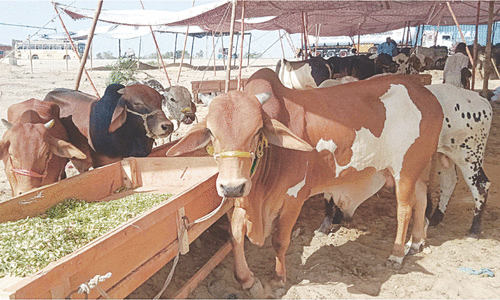KARACHI: The current account was in $2.5 billion deficit during the outgoing fiscal year, the State Bank of Pakistan said on Thursday, almost at the same level as in the preceding year.
But the deficit is still considered high against the backdrop of record inflow of remittances amounting to $20 billion, all-time high foreign exchange reserves of $23bn and an increase of 39 per cent in the foreign direct investment.
During the fiscal year 2015-16, the government benefited from the massive fall in the international oil prices. However, Pakistan’s import bill still dropped by just 2pc, suggesting that the money spent on imports consumed the savings made from cheaper crude oil, whose prices fell by more than 60pc on the global market.
Pakistan imported goods worth $40.46bn in 2015-16 compared to $41.28bn in the previous fiscal year. Imports of luxuries, including costly vehicles and unnecessary food items, put extra pressure on the bill.
Exports also remained disappointing, falling by 8pc year-on-year in 2015-16, widening the trade gap to $18.46bn compared to $17.19bn a year ago.
The real cause of current account deficit has been the ever-increasing trade gap which could not be controlled despite extremely favourable situation emerged from cheap oil and record remittances.
The current account is the broadest measure of trade, covering not only the flow of goods and services but also investment flows. The current account deficit reflects Pakistan’s trade gap with the rest of the world and the shortfall between money paid out by the country and money coming in.
The deficit in the trade of services also fell slightly to $2.414bn in 2015-16 from $2.96bn in the preceding fiscal year.
Though the country’s forex reserves are at record level, the outflow of dollars as debt servicing remained high at $6bn in 2015-16 since most of the reserves are built up by borrowed money.
The recent developments in the Middle East have had a negative impact on Pakistan’s economy — the growth in remittances slowed down significantly, for example, as more than 60pc remittances come from the Arab countries where millions of Pakistanis are employed.
Political instability and massive fall in income due to steep fall in oil prices also forced the regional countries to adopt cost-cutting measures.
Remittances sent home by Pakistanis working abroad grew by just 6pc in 2015-16 compared to 17pc in the previous fiscal year, indicating the region’s precarious job market.
Published in Dawn, July 22nd, 2016












































